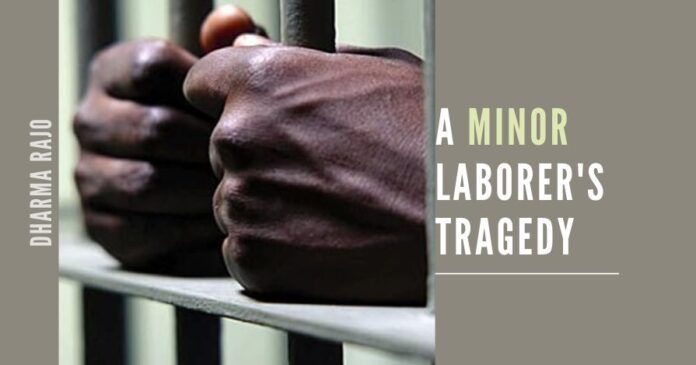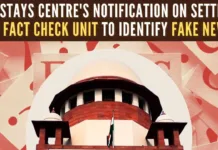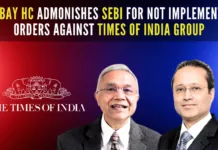
“Why would I kill my wife whom I loved so much?” – Cried the juvenile labourer whose 5 years’ wrongful imprisonment could be avoided by the court.
Almost 50 years had elapsed after independence but poverty was so stricken that this teenager, Madhu Waghe, had to work as a daily wager for his sustenance. Amid his this struggle for survival, primary education for him became a casualty. With hard work, Madhu was making ends meet. Then came the happiest, rather the only happy moment of his life – he found his true love. Madhu and “S” both were adolescents but tied the knot with each other. Post the marriage, the duo was living together with Madhu’s parents. Madhu and his parents were daily labourers while “S” used to take care of the home.
On Nov 27, 2010, Madhu was arrested in Panvel near Mumbai. Charge against him was – he had abetted suicide of his better half who had died on Nov 20, 2010. The trial commenced and sessions court at Alibaug convicted him for the murder of his wife.
During the course of his trial, Madhu himself submitted before the trial court that his age is incorrectly shown as 23 years in the charge sheet. The trial court also believed his age much lesser but did not enquire into his age and assuming him to be an adult sentenced him with life imprisonment.
Zilla Parishad school supported Madhu because according to the record of Zilla Parishad school he was less than 18 years on the day his wife had died.
“Why would I kill my wife whom I loved so much?” Madhu said. “At a very young age, I had assumed all responsibility towards her.” He added.
He and his co-villagers say that the marriage had not gone down well with “S’s” father. Her father was drunk-yard and would visit his daughter at her matrimonial home during day times when Madhu and his parents would be out of home for their labor work. Her father would ask for money from “S” and at times grabbed money away from her home. Perturbed by her father’s torture and grabbing of money, “S” killed herself.
While Madhu was undergoing the sentence of life imprisonment at Kolhapur central jail in Maharashtra, Vikram Vinay Bhave, who was his jail inmate, asked him – “How are you lodged in this jail? You ought to have been in child reformation home as you seem to be minor. How old are you now?” What followed this chat was an RTI application by Vikram Bhave to Zilla Parishad school in Raigad. Madhu faintly recollected he had studied 2-3 years in that school during his early childhood.
Reply by Zilla Parishad school supported Madhu because according to the record of Zilla Parishad school he was less than 18 years on the day his wife had died.
The Bombay High Court observed that it can not look into the claim of juvenility of Madhu in an application that is not filed by Madhu.
Using this reply by Zilla Parishad school, Vikram Bhave approached the Bombay High Court where Madhu’s appeal against his conviction and imprisonment for life was pending. Vikram Bhave brought into the notice of the High Court that Madhu was juvenile on the day his wife killed herself. Vikram urged that Madhu’s juvenility should be decided and if found minor on that relevant day, he should be given benefit under Section 15 of Juvenile Justice (Care and Protection of Children) Act 2000. The provision mandates that juvenile offenders can only be put in a special home and not in an ordinary prison. It also caps such custody in a special home for not more than 3 years for the punishment of any crime. In Madhu’s case, he had already spent 4 years in prison by the time this application was filed by Vikram.
But the Bombay High Court observed that it can not look into the claim of juvenility of Madhu in an application that is not filed by Madhu. By then, Vikram was released on bail and since he was not a relative of Madhu, it was not an easy task for him to contact Madhu who was serving his sentence in Kolhapur Central Prison. With much hardship, an application was filed in September 2017 on Madhu’s name in the High Court for deciding his juvenility and giving him the benefit of the same.
As regards to Madhu’s age, investigation prior to the filing of the charge sheet was botched up before the High Court, the prosecution filed a fair and truthful reply. In fact, this time, Investigating Officer not only verified original record of the Zilla Parishad school (a copy of which was annexed with Madhu’s application) but recorded its Principal’s statement under Section 161 of CRPC, obtained extract from Birth & Death Register of Gram Panchayat and also recorded the statement of the Gram Panchayat’s member under Section 161 of CRPC. Resultantly, the prosecution concluded that Madhu was juvenile on the day his wife committed suicide.
But it was another one and half years from the date of filing of the Madhu’s application that the High Court was prima facie satisfied that Madhu’s age was between 16 to 17 years on the date of the incident. So it directed the Additional Sessions Judge, Alibaug (who happened to be the trial court) to take evidence on the point of the age of Madhu on the date of the incident.
Now began the inning before the Additional Sessions Judge, Alibaug for proving Madhu’s juvenility. Alibaug is a separate district in Maharashtra and undertaking 6 hours journey between Mumbai and Alibaug on every date was exhaustive. Fortunately, there was no adjournment before the Additional Sessions Judge, Alibaug, and in a few dates, an examination of witnesses, production of documents, and argument were over. After considering the evidence, the Additional Sessions Judge concluded that Madhu was juvenile on the day when his wife “S” committed suicide. Since it was the High Court’s direction in pursuance of which the Additional Sessions Judge undertook the exercise of evidence taking on Madhu’s age, it reported its finding on Madhu’s juvenility to the High Court in August 2018.
With a favorable report by the Additional Sessions Judge, Madhu was now closer to his release from Kolhapur Central Prison, but it would take few more months for him to come out of the Prison. The High Court took up the matter in January 2019. It was satisfied with the evidence given on the point of Madhu’s age and concurred with the finding of the Additional Sessions Judge that Madhu was minor on the date of the incident. The High Court observed that for the crime, for which Madhu was convicted, he could not have been imprisoned for more than 3 years according to Section 15 of Juvenile Justice Act, but he had already spent more than 8 years behind bars. And held that imprisonment for life could not be handed over to Madhu. Resultantly the High Court set Madhu free in January 2019.
Pursuing Madhu’s case pro bono from the time Zilla Parishad school responded under the RTI Act, it was a great pleasure to see that Madhu’s remainder of the life is finally saved from jail. There was another realization as well but on a darker side. The trial court, though prima facie felt that Madhu was too young to be tried as an adult, did not direct Police to investigate into his age. Neither it enquired itself into this aspect. Similarly, while dealing with the application of Vikram Bhave, the High Court attached more weightage to the technicality that Madhu should raise – and not Vikram Bhave – the plea of Madhu’s juvenility than to the fact that Madhu had already served imprisonment that could be imposed on him lawfully. Lastly, the High Court took 1 year and 4 months in deciding Madhu’s application for setting him free on the basis of his juvenility.
Courts in our country need to be more sensitive towards prisoners like Madhu and deal with them humanly. People are mindful that mistakes can and do occur but once a mistake, directly and absolutely curtailing the liberty of a person, is pointed out, Courts should not take years in correcting such errors. Otherwise, the danger is – people will not be able to continue to hold their trust and confidence in the Country’s criminal justice machinery.
Note:
1. The views expressed here are those of the author and do not necessarily represent or reflect the views of PGurus.











But the same courts are going all out to grant all kinds of recourses like granting bail to notorious criminals like PC, Sonia etc.